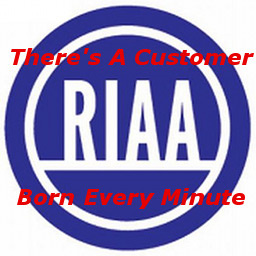 RIAA President Cary Sherman recently posted a statement responding to last week's summary judgement in the Viacom lawsuit against YouTube decrying the decision as a "dangerously expansive reading of the liability immunity provisions of the DMCA." He also called it "bad public policy."
RIAA President Cary Sherman recently posted a statement responding to last week's summary judgement in the Viacom lawsuit against YouTube decrying the decision as a "dangerously expansive reading of the liability immunity provisions of the DMCA." He also called it "bad public policy."
This is nothing surprising coming from the RIAA. Like the MPAA and Business Software Alliance (BSA), they have consistently argued service providers should be responsibile for identifying copyright infringement rather than the content owners themselves.
But as Judge Louis Stanton pointed out in his decision on YouTube's DMCA defense, this responsibility falls solely on the shoulders of the content owners except in rare cases where the infringement is obvious without any investigation.
He wrote, "The DMCA is explicit: it shall not be construed to condition "safe harbor" protection on "a service provider monitoring its service or affirmatively seeding facts indicating infringing activity.""
Judge Stanton went on to explain, "the present case shows that the DMCA notification regime works efficiently," pointing out that it took less than a single business day for YouTube to remove nearly 100,000 videos once they received Viacom's takedown notices.
You can read the entire judgement below.
In his attack on the decision, Sherman claimed, "We need businesses to be more proactive in addressing infringement, not less." But the question is what do they need it for?
Clearly they don't need any such thing for their DMCA rights to be protected, which is exactly why YouTube was awarded a summary judgement.
In fact, the only reason they would "need" service providers to police copyright more closely is to avoid the expense of doing it themselves.
As anyone familiar with fair use can tell you, figuring out whether a work qualifies is fair use isn't possible for a computer. It can only be done by a human, and even then there's a lot of gray area which can only be definitively ruled on by a judge.
Additionally, there's no way for a service provider like YouTube to know whether a particular use of copyrighted content is licensed or not.
The RIAA isn't just looking for help. They're demanding the impossible.
Viacom v YouTube Summary Judgment













